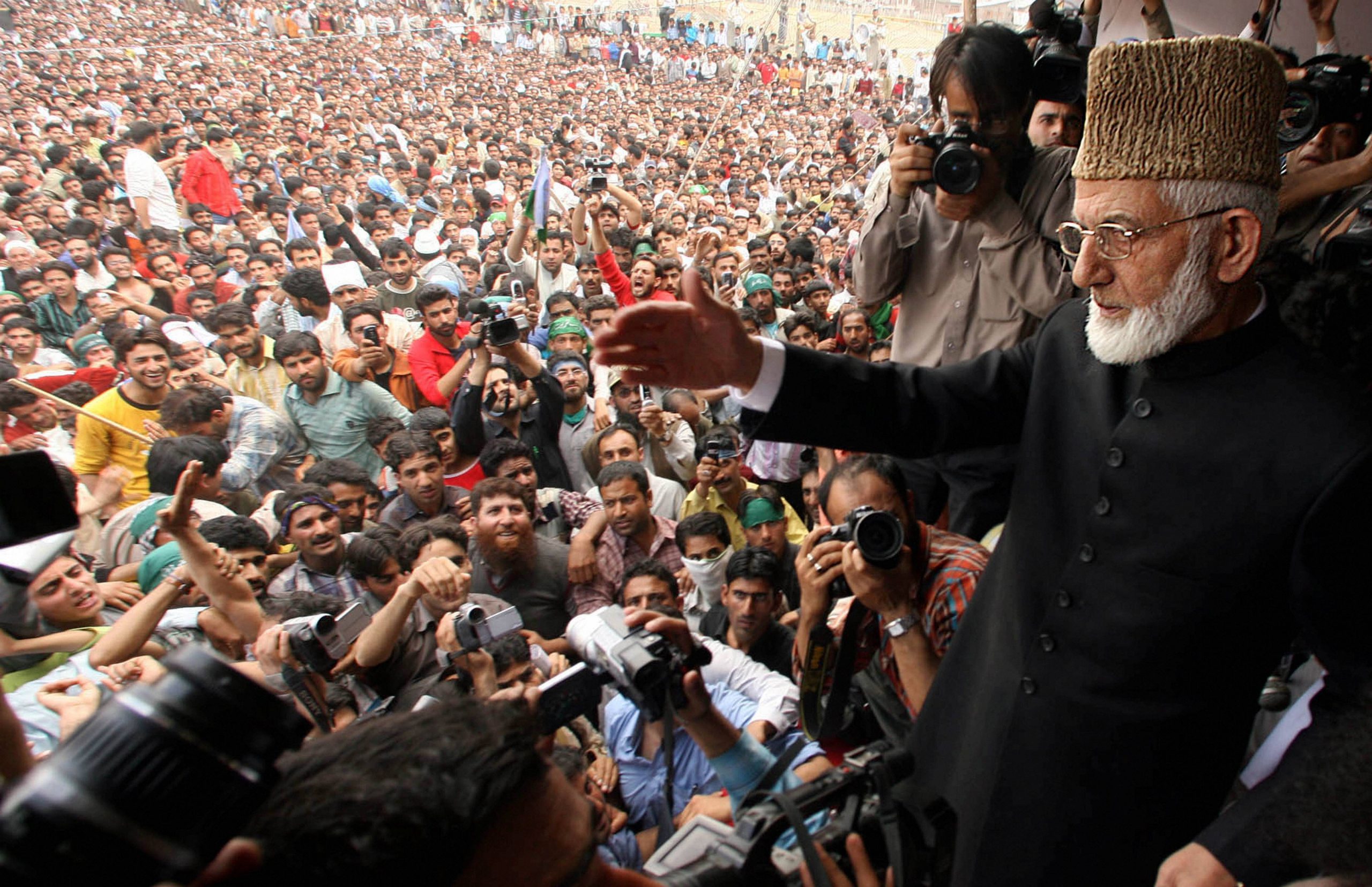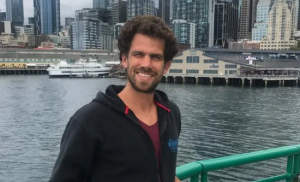Amid growing buzz over a possible ban on Tehreek-e-Hurriyat in Jammu and Kashmir, the imposing green and white board atop a brick facade of the outfit’s office in Srinagar’s Hyderpora has gone missing overnight.
Local media, quoting eyewitnesses, said that the sign board was removed from the Tehreek-e-Hurriyat on Sunday evening by the domestic workers of Syed Ali Shah Geelani, the leader of the extremist Hurriyat faction. The Hyderpora premises serves as 91-year-old Geelani’s office-cum-residence.
Also read: Srinagar man on 900-km walk to Delhi with one dream. Find out what
This comes amid speculation that a ban under the stringent Unlawful Activities (Prevention) Act was imminent on both factions of the secessionist outfit, which has been spearheading the separatist movement in Jammu and Kashmir for over two decades, officials said, reports PTI.
A recent probe into the granting of MBBS seats to Kashmiri students by institutions in Pakistan indicates that the constituents of Hurriyat Conference were “selling” the seats in Pakistan to Kashmiri students and using the money collected, at least partly, to support and fund terrorism.
Also read: How a World Bank project is reviving Kashmir’s silk industry
The officials added that both factions of the Hurriyat are likely to be banned under UAPA, under which “if the Central Government is of opinion that any association is, or has become, an unlawful association, it may, by notification in the Official Gazette, declare such association to be unlawful,” reports PTI.
Details of probe against Hurriyat leaders
The Hurriyat factions have been under probe for months now over terror funding investigating agencies unearthing hawala routes. According to officials Hurriyat cadres — in league with militants of proscribed terrorist organisations Hizb-ul-Mujahideen (HM), Dukhtaran-e-Millat (DeM) and Lashkar-e-Taiba (LeT — raised funds in the country and from abroad through various illegal channels.
Also read: Taliban, Pakistani forces instructed to target India-built Afghan assets: Report
The funds collected were used for causing disruption in the Kashmir Valley by way of pelting stones on security forces, systematically burning schools, damaging public property and waging war against India as part of a criminal conspiracy, officials said, reports PTI.
JKLF chief Yaseen Malik, DeM head Asiya Andrabi and pro-Pakistan separatist Masarat Alam were also named in a supplementary charge sheet in a case of terror financing.
Arrests so far
Many leaders of both Hurriyat factions are currently in jail. Security agencies, after carrying out a probe, started making arrests from 2017. Among those in jail are Altaf Ahmed Shah, the son-in-law of Geelani; businessman Zahoor Ahmed Watali; Geelani’s close aide Ayaz Akbar, who is also the spokesperson of the hardline separatist organisation Tehreek-e-Hurriyat; Peer Saifullah; Shahid-ul-Islam, spokesperson of the moderate Hurriyat Conference; Mehrajuddin Kalwal; Nayeem Khan; and Farooq Ahmed Dar alias ‘Bitta Karate’.
All about Hurriyat
The Hurriyat Conference came into existence in 1993 with 26 groups, including some pro-Pakistan and banned outfits such as the Jamaat-e-Islami, JKLF and the Dukhtaran-e-Millat. It also included the People’s Conference and the Awami Action Committee headed by Mirwaiz Umer Farooq.
The separatist outfit broke into two factions in 2005 with the moderate group being led by the Mirwaiz and the hard-line headed by Syed Ali Shah Geelani.
The Hurriyat Conference again split in 2014. The moderate Hurriyat Conference led by Mirwaiz Umar Farooq faced the split after four senior leaders revolted. Democratic Freedom Party president Shabir Ahmad Shah, National Front chairman Nayeem Ahmad Khan, Mahaz-e-Azadi chief Mohammad Azam Inqlabi and Islamic Political Party Mohommad Yousuf Naqash walked out.
Other banned outfits
So far, the Centre has banned the Jamaat-e-Islami and the JKLF under the UAPA. The ban was imposed in 2019.







